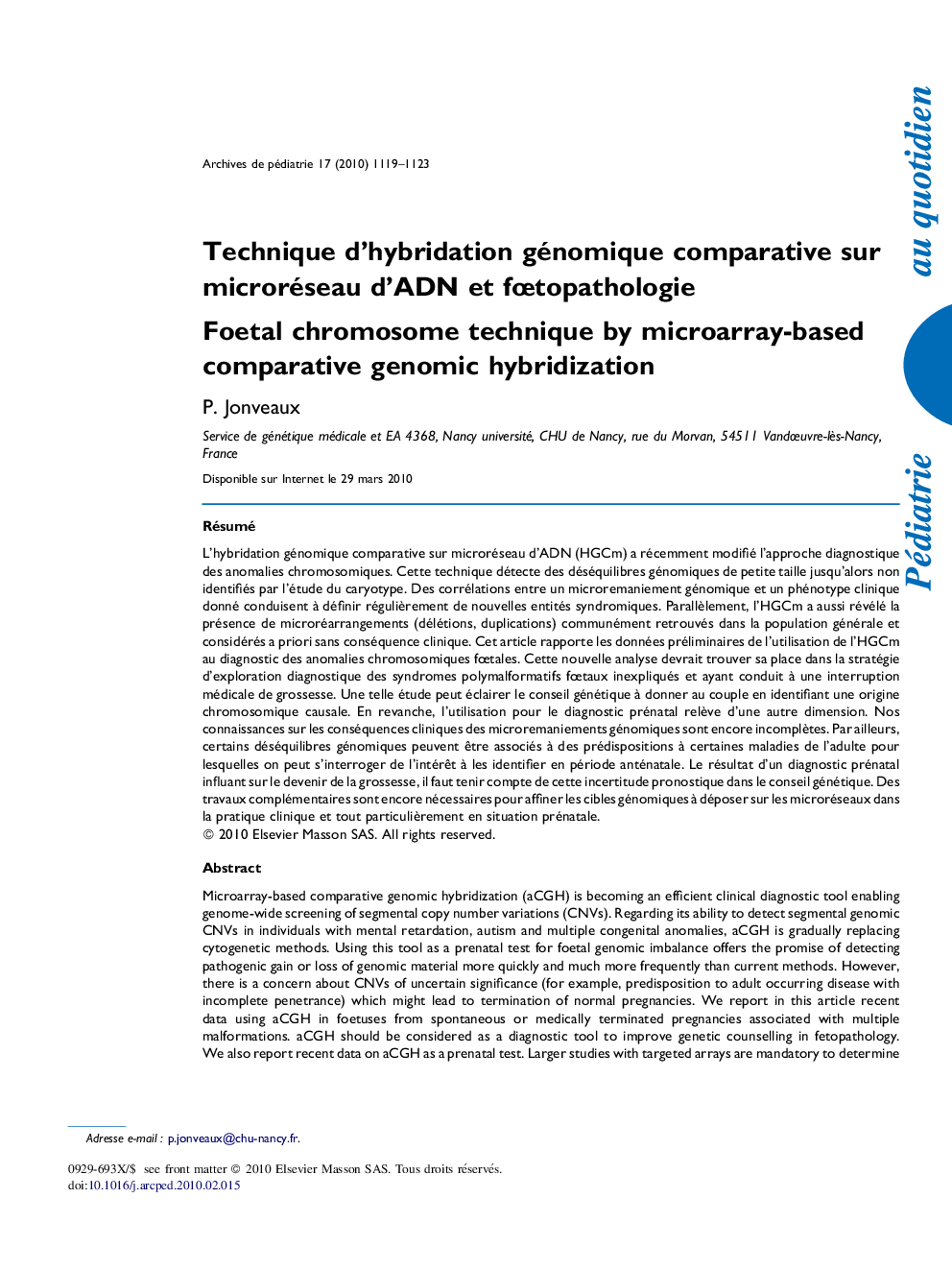| Article ID | Journal | Published Year | Pages | File Type |
|---|---|---|---|---|
| 4148592 | Archives de Pédiatrie | 2010 | 5 Pages |
Abstract
Microarray-based comparative genomic hybridization (aCGH) is becoming an efficient clinical diagnostic tool enabling genome-wide screening of segmental copy number variations (CNVs). Regarding its ability to detect segmental genomic CNVs in individuals with mental retardation, autism and multiple congenital anomalies, aCGH is gradually replacing cytogenetic methods. Using this tool as a prenatal test for foetal genomic imbalance offers the promise of detecting pathogenic gain or loss of genomic material more quickly and much more frequently than current methods. However, there is a concern about CNVs of uncertain significance (for example, predisposition to adult occurring disease with incomplete penetrance) which might lead to termination of normal pregnancies. We report in this article recent data using aCGH in foetuses from spontaneous or medically terminated pregnancies associated with multiple malformations. aCGH should be considered as a diagnostic tool to improve genetic counselling in fetopathology. We also report recent data on aCGH as a prenatal test. Larger studies with targeted arrays are mandatory to determine whether the improved overall detection rates of clinically chromosomal abnormalities will justify offering aCGH in a prenatal diagnosis setting.
Related Topics
Health Sciences
Medicine and Dentistry
Perinatology, Pediatrics and Child Health
Authors
P. Jonveaux,
